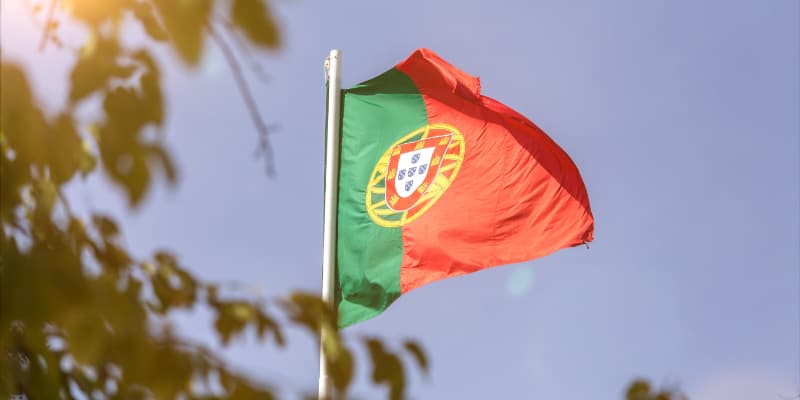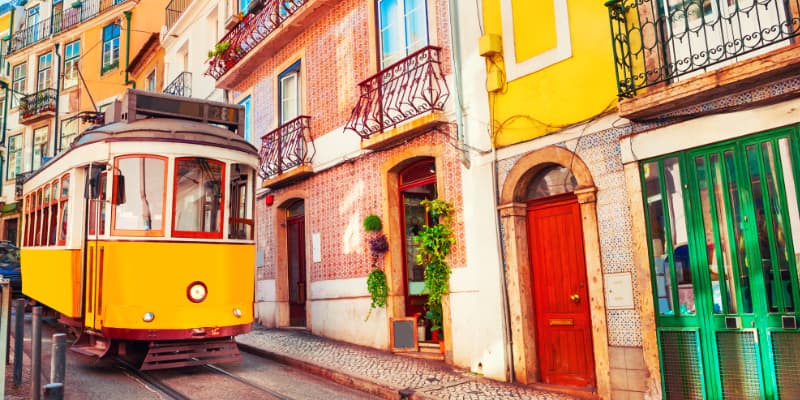Gastronomy & Wines
Gastronomy is a combination of art, science and the style of eating good foods, and the Portuguese have a distinct style. Combine the food with the wines, and you have a fare that will appeal to any taste.
Gastronomy & Wines of Portugal
Gastronomy is a combination of art, science and the style of eating good foods, and the Portuguese have a distinct style. Combine the food with the wines, and you have a fare that will appeal to any taste. The foods of Portugal are infamous for a variety of fare, including many types of fish and crustaceans, meats, cheeses, and desserts. This rich culture has expanded its impact on the dining world, exposing a wide range spices and flavors to the neighboring countries.

Portuguese Seafood dish - Cataplana
Part of Portugal's proud history of gastronomy relies on ties to tradition. This European country offers a moderate climate, conducive to year round fishing. The rich valleys also provide abundant wineries and olive production. Sophisticated irrigation systems that have existed for years have made it possible for this small country to become infamous for the food and wines.
The Portuguese spices found in their foods include an interesting combination of coriander, ginger, curry, pepper, paprika and saffron. These are used in combination with many of their dishes to provide a unique experience.
Part of gastronomy is fully experiencing a meal. This includes multiple courses. One of the everyday staples in the Portuguese diet is soup. Caldo Verde is a soup made from shredded cabbage, along with potatoes, sausage, and olive oil. This simple meal, which resembles the Irish version, is wonderful. There are also choices with dried codfish, swordfish, and red mullet.
Fish and crustaceans are not limited to soup and appetizer dishes in the Portuguese culture. They are turned into delightful stuffed crabs, and sardines are a common treat for outdoor events. These dishes are available in a range of prices and styles of preparation.
The Portuguese people are definitely known for more than just fish - they also cook their meat in flavorful recipes. Whether it is a steak, pork or poultry, the Portuguese gastronomy dictates a rich marinade or spices. Often these sauces will include wine or garlic, often stewed. There are regional variations which offer a rich variety to meal preparation within this country.
Portuguese cheese is a delicacy you won't want to miss! When dining in a Portuguese establishment, the waiter will often bring a cheese and bread platter as an appetizer. Sample these, making sure not to miss the qeijo daserra, a cheese made from sheep in the highest peak of Portugal (the Serra da Estrela Region). This cheese can be compared to a brie, because of the delicate flavors and smooth consistency.

Portuguese dish - Chicken Piri Piri
Other cheese made in the country include Serpa, which ranges from sweet to strong depending on how long it has been aged. There are also goat cheese, and other specialties to eat alone or in a dish.
Desserts are not overlooked. The Portuguese seem to have quite a sweet-tooth, with over two hundred choices in pastries. When the Moors introduced sugar cane to the country several hundred years ago, the Catholic convents gained a reputation for the pastries they produced. Many of these dishes were named with religious references.
Fruits are also available in abundance in Portugal, making dessert a pleasure. Whether served alone, or paired with a pastry, choices range from juicy cantaloupe to mangos or succulent grapes and pineapples all grown in the region.
No dining experience is complete without wine, and Portugal offers more than one hundred varieties. Whether you want a simple table wine, or you are looking for something more specialized and distinct, there is a choice for any pallet. The unique wines of Portugal vary, depending on which region the grapes were grown, as well as the nuances in soil changes, weather and barreling.
Port wines have a very high alcohol content, up to 22%, and are known for the strict regulations during production. Depending on the crop of grapes, types of wood and length of aging, each glass is a unique blend of flavors. The red wine is younger, and tastes a little sweeter, while the ruby colored wines have been aged longer with a stronger combination of flavors. The white ports are a golden color, with a variety of flavors up to 40 years old.
The Madeira wines (named for the region) come in a variety of choices, from a sweet, smooth wine known as "Malvasia", to a rich, semi-dry "Boal". These wines are best as an appetizer wine or dessert wine, to compliment the end of a meal.
For a wine to go with seafood or even poultry, Vinho Verde is a good choice. This is more of a champagne type wine, with a lower alcohol content at about only 10%. This is a wine that will appeal to all your guests with the sweet and light flavors.
Eating red meats requires a special wine. Red wines from the Dao region offer a nice, dark colors, and pair well with spicier meats, game and the infamous cheeses of the region. This region also produces white wines that are filled with citrus undertones, and frequently served with grilled meat as well, and also go well with the strong cheeses.
If you are eating a fish dish, try a Bucelas wine. These are a very dry wine, and pair well.
The newly popular "moscatal" grape produces a wine that is rich and sweet, with a honey type flavor. It is aged for anywhere from five to twenty five years, and makes an amazing dessert wine.
With so many choices available in foods and wines, visiting Portugal will provide a full spectrum for any gastronomy experience! In order to make sure that you get a complete experience, research the foods particular to the region you will be visiting and find a server that will guide your choices. Pairing the right foods, desserts and wines will be an experience that you will want to savor again and again!
Further Reading:
For more information on Food & drink in Portugal and on buying Property in Portugal contact the team at Portugal property by sending your emails to: info@portugalproperty.com or feel free to call anytime from 8am to 8pm on 0800 014 8201








